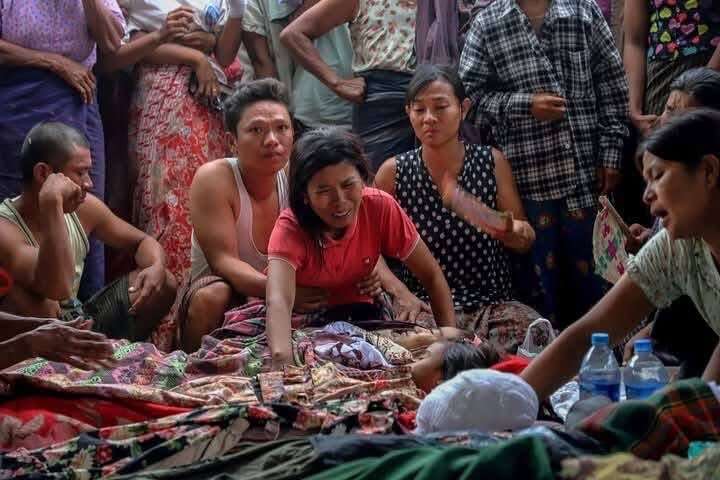
Justice For Myanmar (JFM) has released a list of disgraced ASEAN tycoons who are supporting the Myanmar military council’s violent operations on May 12. The list includes two prominent Thai businessmen who have been identified as major financial supporters of the military regime. The first individual is Charoen Sirivadhanabhakdi, founder of Thai Beverage and chairman of TCC Group and Fraser & Neave. With assets worth US$11.9 billion, he is Thailand’s third wealthiest person. His companies are major taxpayers to the Myanmar military council, with one subsidiary alone paying 25.9 billion kyats (equivalent to US$14 million) in special goods tax to the regime in just the fourth quarter of 2021. Even after the coup, his Singapore-listed subsidiary Fraser & Neave expanded its business operations in Myanmar in 2023.
The second individual is Chatchai Rambamrung, executive director of Northern Gulf Petroleum. He is a former business executive of ex-Thai Prime Minister Thaksin Shinawatra and served as an advisor to former Prime Minister Chavalit Yongchaiyudh. When international oil companies were rapidly exiting Myanmar following the military’s attempted coup, Rambamrung saw an opportunity. In 2022, he acquired the Yetagun offshore natural gas project and pipeline, a major oil and gas block in Myanmar, from a consortium of Malaysian and Japanese businesses, partnering with the military-controlled Myanmar Oil and Gas Enterprise.
According to JFM, the tax payments from these tycoons’ businesses to the military council serve as a crucial source of funding for the regime’s expensive aerial attacks and oppression of Myanmar civilians. The organization firmly states that as long as these wealthy ASEAN businessmen continue to support the military council, ASEAN cannot claim to be supporting peace in Myanmar while the regime’s brutal violence continues to threaten the lives of children and civilians. The report emphasizes how these business operations provide significant revenue streams that enable the military council to maintain its campaign of violence and oppression against the Myanmar people.
The organization has strongly emphasized that these business relationships directly contribute to the military council’s ability to maintain its oppressive control over Myanmar’s population. The tax revenues generated from these operations specifically help fund the military’s expensive aerial operations, which have been a key component of their violent campaign against civilians. JFM maintains that ASEAN’s claims of supporting peace in Myanmar are hollow as long as prominent ASEAN business figures continue to provide financial support to the military regime that enables its ongoing campaign of violence and oppression.



